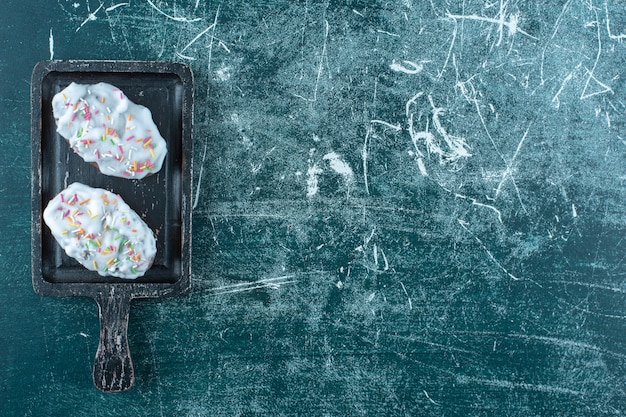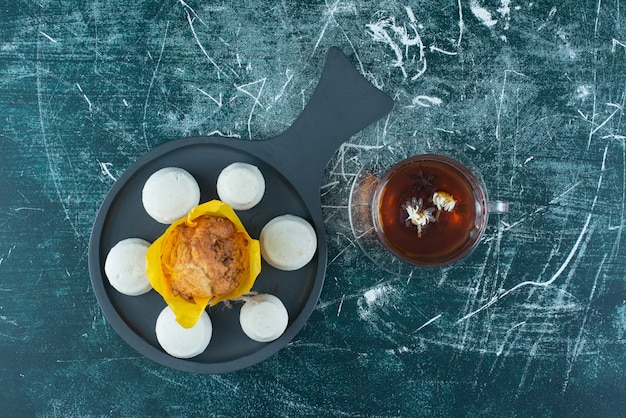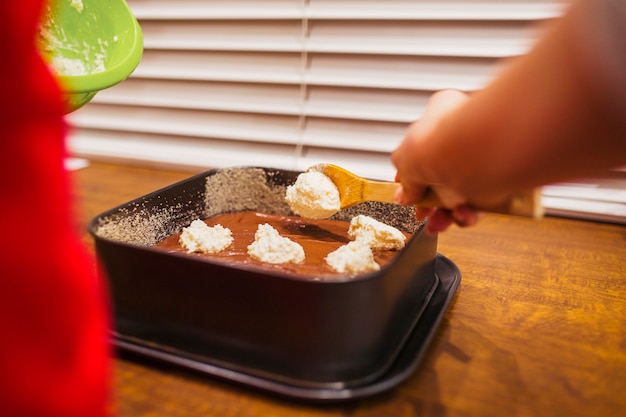Let's be honest, we've all been there – staring at a carton of eggs in the fridge, wondering if we'll actually use them all before they go bad. I used to be a bit of a breakfast snob, too. Fresh, farm-fresh eggs were my only option. Frozen eggs? That just seemed like a culinary compromise. I imagined rubbery, tasteless scrambled eggs and swore off the idea completely.
But then, life, as it tends to do, threw me a curveball. I ended up with a surplus of eggs after a weekend baking spree, and the idea of tossing them out was just unthinkable. So, with a touch of trepidation, I decided to give freezing a try. And guess what? It was a revelation! The frozen eggs were just as good as fresh, if not better. Don't tell the chickens, but I'm a convert!
Now, I'm a firm believer in the power of frozen eggs. They're a kitchen lifesaver, especially on those rushed mornings when the last thing you want is to spend ages prepping breakfast. But, you need to know the right way to cook them. Otherwise, you might end up with a breakfast disaster. And that's where I come in.
In this article, I'm going to share my experience and expertise on cooking frozen eggs. We'll cover everything from simple scrambled eggs to more elaborate dishes, debunking common myths and shedding light on the science behind it all. So, grab your apron, get your pan ready, and let's get cooking!
Part 1: The Frozen Egg Truth

Let's get one thing straight – frozen eggs are perfectly safe to eat! They're not just for baking, as many people believe. Frozen eggs are as versatile as fresh eggs and can be used in any recipe that calls for eggs. The key is understanding how freezing affects their texture and consistency.
Think of it this way: Freezing can make the egg whites a little more watery and the yolks slightly less firm. It's like a subtle change in the egg's internal structure. So, your scrambled eggs might be a bit looser, and omelets could be less fluffy. But don't let that scare you off. With a few simple tricks, you can still achieve fantastic results.
The Benefits of Frozen Eggs
Despite the slight texture changes, frozen eggs have a lot to offer:
- Convenience: No more last-minute trips to the store! Frozen eggs are always ready when you are.
- Cost-effective: You can often buy frozen eggs in bulk, which can save you some serious cash.
- Longer shelf life: Frozen eggs can last for months, so you can stock up and worry less about spoilage.
- Reduced waste: Use only what you need and avoid that awful feeling of tossing out leftover eggs.
What to Look for in Frozen Eggs
When shopping for frozen eggs, consider these factors:
- Pasteurized: Always go for pasteurized frozen eggs, especially if you're prone to food sensitivities. This ensures they're safe to eat.
- Date: Check the expiration date to ensure freshness. Older eggs might not be as flavorful.
- Appearance: Choose frozen eggs that have a uniform color and are free from discoloration or damage.
Part 2: How to Cook Frozen Eggs

Now for the fun part – cooking with frozen eggs. It's all about understanding the texture changes and adjusting your cooking methods accordingly. Here's a breakdown of how to cook frozen eggs for various recipes:
2.1. Scrambled Eggs
Scrambled eggs are a great starting point for cooking with frozen eggs. The slight looseness in the egg whites can actually work to your advantage, creating a creamier, more delicate texture.
- Thaw the eggs: You don't need to completely thaw frozen eggs before scrambling them. A quick thaw in the fridge overnight or 30 minutes at room temperature is sufficient.
- Add extra liquid: Since the egg whites might be a bit watery, add a tablespoon or two of milk or cream to your scrambled eggs. This helps create a smoother consistency.
- Cook slowly and gently: Start cooking over low heat and stir frequently to prevent the eggs from sticking or becoming rubbery.
2.2. Omelets
Omelets are a bit more of a challenge with frozen eggs. The egg whites might be a bit more prone to spreading. But don't worry, with a few tricks, you can create a perfectly fluffy omelet.
- Thaw completely: For omelets, it's essential to thaw the eggs completely overnight in the refrigerator. This will help them maintain their structure and prevent them from becoming too watery.
- Whip the whites: To add extra fluffiness, whisk the egg whites separately until they form soft peaks. Then, gently fold them into the yolks just before cooking.
- Cook quickly: Cook the omelet over medium heat, but don't overcook it. The goal is to create a delicate omelet with a slightly runny center.
2.3. Fried Eggs
Fried eggs can be a bit tricky with frozen eggs. The egg whites can spread out more than fresh eggs. But with a few adjustments, you can still achieve that perfect runny yolk.
- Use a nonstick pan: A nonstick pan is essential for frying frozen eggs. It helps prevent sticking and allows you to cook them on a lower heat.
- Add a little water: Add a small amount of water to the pan before adding the eggs. This creates a steamy environment that helps cook the eggs more evenly.
- Cook slowly and gently: Cook frozen eggs over low heat. Be patient and allow them to cook through slowly. This helps prevent the whites from becoming rubbery.
2.4. Baking
Frozen eggs are a dream for baking! Their texture doesn't really matter in most baked goods, and you can use them straight from the freezer without thawing.
- Add a bit of extra liquid: Since frozen eggs can be slightly drier than fresh, you might need to add a bit of extra liquid, like milk or water, to your recipe.
- Use a scale: When baking, it's always a good idea to use a kitchen scale to measure your ingredients, including eggs. This ensures consistent results, regardless of whether your eggs are fresh or frozen.
Part 3: Tips and Tricks for Cooking Frozen Eggs

Here are some extra tips and tricks to help you get the most out of your frozen eggs:
3.1. Thawing
While you can use frozen eggs straight from the freezer in some recipes, thawing them before cooking usually yields better results. Here are different methods:
- Refrigerator: The gentlest method is to thaw the eggs overnight in the refrigerator. This ensures even thawing.
- Cold Water: Place frozen eggs in a bowl of cold water and change the water every 30 minutes until they are thawed.
- Microwave: Use the defrost setting on your microwave to thaw the eggs. Be careful not to overheat them, as this can cause them to cook unevenly.
3.2. cooking time
Frozen eggs might need a little extra time to cook compared to fresh eggs. Keep a close eye on them and adjust the cooking time as needed.
3.3. Don't Overcook!
Overcooked frozen eggs can be dry and rubbery. Keep an eye on them and cook them to your preferred level of doneness.
3.4. Seasoning
Frozen eggs might not have the same depth of flavor as fresh eggs. Don't be shy with your seasoning – it will enhance the taste and create a more flavorful dish.
Part 4: The Science of Frozen Eggs
Curious about what happens to eggs on a molecular level when they're frozen? Let's dive into the science behind it.
4.1. The Chemistry of Freezing
When you freeze eggs, the water molecules within them expand as they turn into ice crystals. This expansion can disrupt the delicate structure of the egg whites, making them more watery and prone to separating. The yolks also become more fluid and can lose some of their binding power.
4.2. Why Frozen Eggs Might Taste Different
These structural changes can sometimes affect the taste. The egg whites might be a bit more watery, and the yolks might have a slightly less intense flavor. However, these differences are often subtle and many people wouldn't even notice them.
Part 5: Debunking Myths About Frozen Eggs
There are a lot of misconceptions floating around about frozen eggs. Let's set the record straight and debunk some common myths:
5.1. Frozen Eggs Are Less Nutritious
False! Frozen eggs retain most of their nutritional value, including protein, vitamins, and minerals. Freezing doesn't significantly affect their nutritional content.
5.2. Frozen Eggs Can't Be Used for Omelets
Not true! With the right thawing and cooking techniques, you can easily make delicious omelets with frozen eggs. Just remember to thaw them completely before whisking and cooking.
5.3. Frozen Eggs Are Only for Baking
Myth busted! Frozen eggs are incredibly versatile and can be used in a wide range of recipes, from scrambled eggs to omelets, frittatas, and even desserts.
Part 6: Exploring Different Uses for Frozen Eggs
Frozen eggs are truly a culinary chameleon, adding their unique touch to various dishes. Let's explore some creative uses beyond the basics:
6.1. Asian Cuisine
Frozen eggs are often used in Asian cuisine. Think stir-fries, noodle dishes, and dumplings. They add richness and a silky texture to these dishes.
6.2. Quiche
Frozen eggs are ideal for making quiche. Their consistency helps to bind the filling together and creates a smooth, creamy texture.
6.3. Soups and Stews
Frozen eggs can be added to soups and stews to create a velvety texture and add a boost of protein.
6.4. Desserts
Frozen eggs can be used in desserts, such as cakes, muffins, and cookies. They help to create a moist and tender crumb.
Part 7: Storage and Shelf Life
Once you have frozen eggs, it's crucial to store them properly to maintain their quality. Here's a breakdown of storage guidelines and shelf life:
7.1. Storage
Store frozen eggs in the freezer at a temperature of 0°F (-18°C) or below. You can store them in their original container or transfer them to freezer-safe bags or containers.
7.2. Shelf Life
Frozen eggs can last for up to 12 months in the freezer. However, for the best flavor and texture, it's best to use them within 6-8 months. You can usually find the recommended storage time on the package.
Part 8: FAQs
8.1. Can I Freeze Eggs in Their Shells?
It's not recommended to freeze eggs in their shells. The expansion of water molecules during freezing can cause the shells to crack, and the eggs might become unusable.
8.2. Can I Freeze Egg Whites and Yolks Separately?
Absolutely! You can freeze egg whites and yolks separately. This is particularly helpful if you only need a certain amount of each.
8.3. What Happens If I Freeze Eggs for Too Long?
If you freeze eggs for an extended period, they might start to lose their flavor and texture. However, they will still be safe to eat.
8.4. How Can I Tell if Frozen Eggs Have Gone Bad?
If frozen eggs have gone bad, they might have a strong odor or an off-color. It's best to discard any eggs that look or smell unusual.
8.5. Can I Freeze Cooked Eggs?
While you can freeze cooked eggs, it's not ideal. The texture will change after freezing and thawing, becoming more rubbery. It's best to freeze them in dishes like frittatas or quiches where the egg texture isn't as crucial.
Conclusion
I used to think frozen eggs were a last resort, but I've learned to embrace their convenience and versatility. With a few simple tips and tricks, you can cook frozen eggs just as well as fresh ones. So, next time you're in a pinch, don't hesitate to grab those frozen eggs – they're a culinary lifesaver!
Now that you've unlocked the secrets of frozen eggs, go forth and create culinary masterpieces. From classic breakfasts to innovative dishes, the possibilities are endless. Happy cooking!
Everyone is watching

How to Cook Frozen Lobster Tails Perfectly: A Step-by-Step Guide
RecipesLobster. Just the word conjures up images of lavish meals, special occasions, and a taste of luxury. But let's...

Pigs in a Blanket Cooking Time: How Long to Bake for Perfect Results
RecipesAh, pigs in a blanket. Just the name conjures up images of those delightful little parcels of crispy pastry en...

Pork Fillet Cooking Time: How Long to Cook It Perfectly
RecipesPork fillet, or tenderloin as it's sometimes called, is a real favourite in our house. It's so versatile, and...

The Ultimate Guide to Cooking Delicious Frankfurters
RecipesLet's face it, we all love a good frankfurter. It's a classic, simple, and always satisfying. But let's be rea...

Wolf Meat Recipes: A Guide to Cooking Wild Game
RecipesLet's be honest, you don't see wolf meat at your local butcher shop every day. It's a bit of a wild card, but ...
